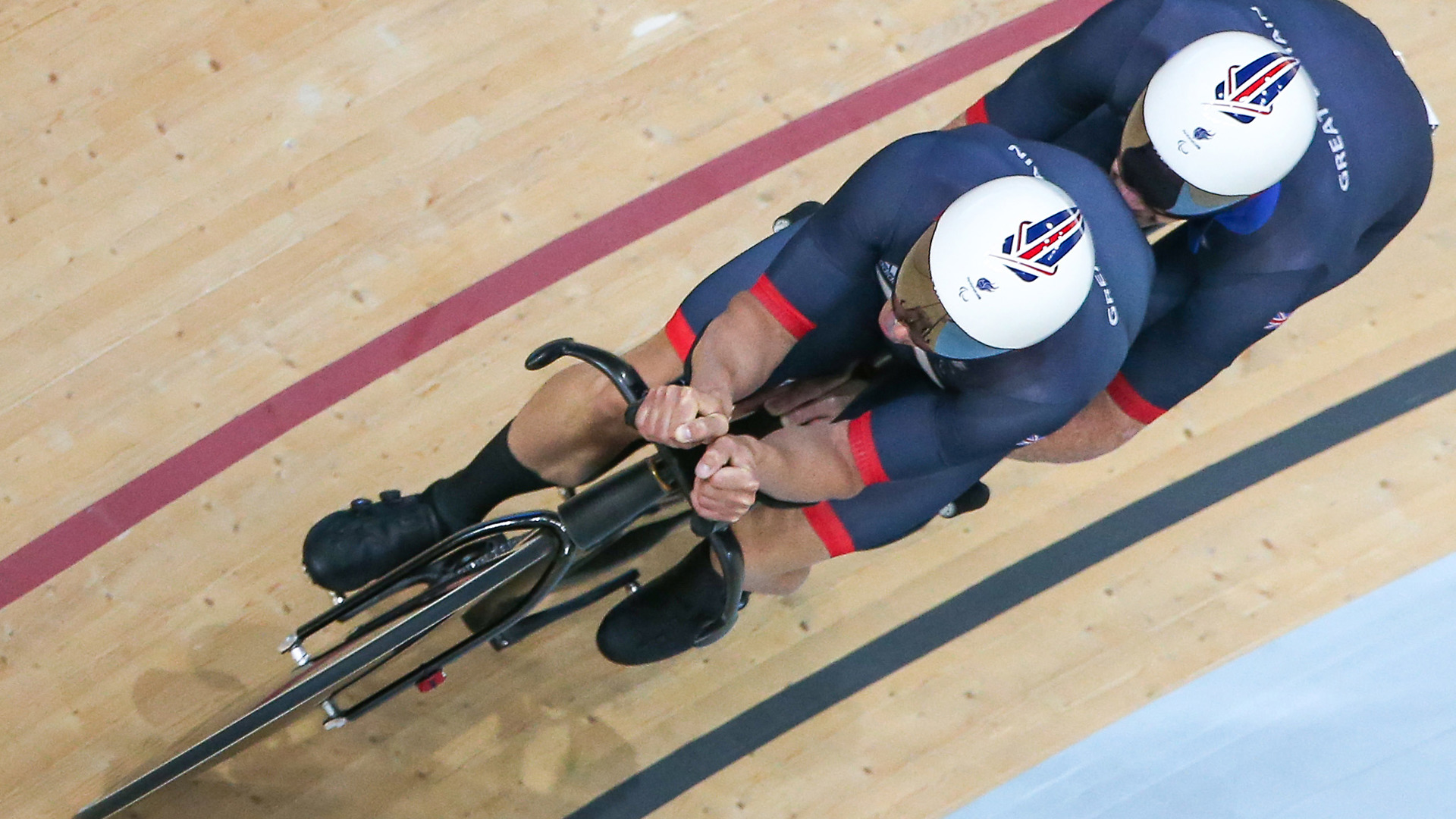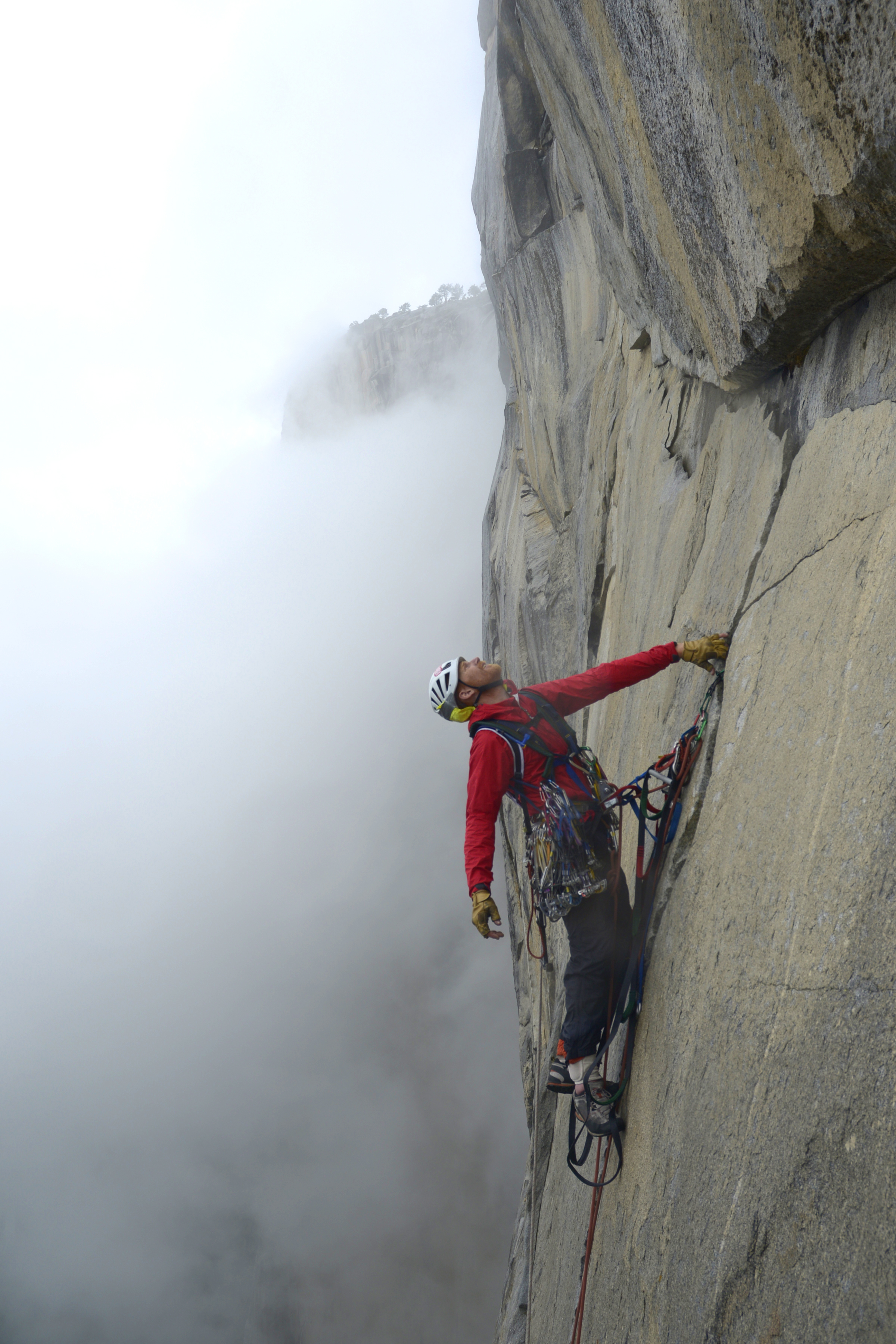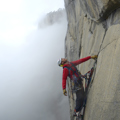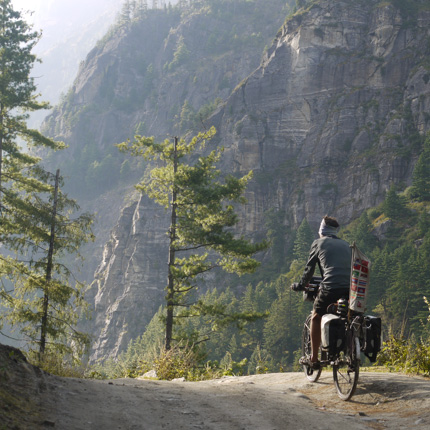
How do you describe what you do?
I guess it’s pretty simple: I race on the back of a tandem for the Great British Cycling Team and ParalympicsGB. Because of my degenerative eye condition, my sight isn’t good enough to race with a peloton of riders, so I race a tandem with my sight pilot Adam Duggleby MBE. We’ve been racing together since 2014. Off the bike, I’m usually hatching hare-brained ideas to test myself both physically and mentally on adventurous bike-packing journeys.
What first drew you into the outdoors?
It’s hard to remember back that far now, but I would think the freedom and the unknown. As a kid growing up in New Zealand, it’s an exciting time when your parents trust you enough to let you go off for the day messing around in the woods. I really believe it's an important part of growing up, having access to the outdoors as a child. You learn so much about life on little adventures. Things like developing your own internal risk assessment and, most importantly, getting yourself out of trouble, if you find yourself in it!
Steve representing ParalympicsGB
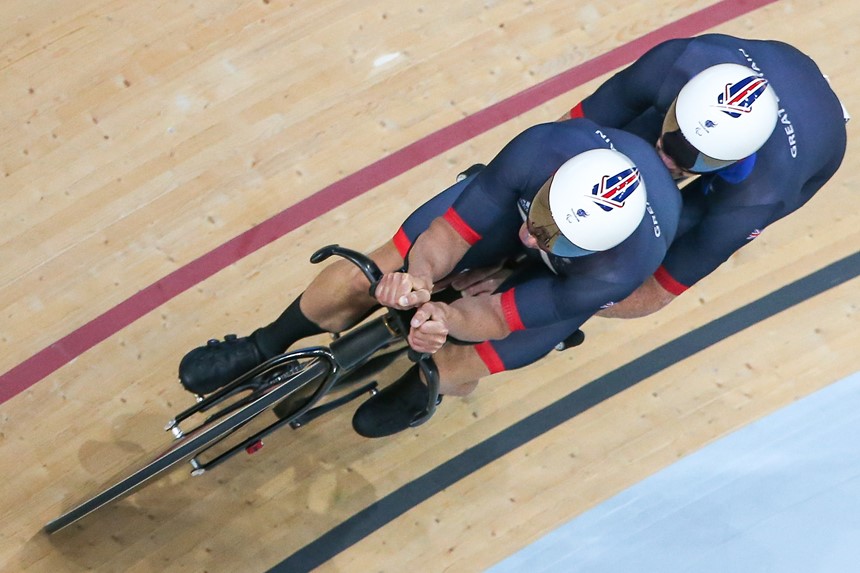
'I guess when I got told I may only have four years left before going blind, I stopped caring what people thought, and focused on what I thought and wanted from life.'
Has the way you think about adventure changed as your eyesight has degenerated? If so, how?
Yeah for sure. It’s made me realise that life is for living, and putting barriers in the way to stop me chasing my dreams is pointless. We all seem so afraid of failing if we stretch ourselves, worried about what our friends might think or say. I guess when I got told I may only have four years left before going blind, I stopped caring what people thought, and focused on what I thought and wanted from life.
Maybe now some of my adventures aren’t as crazy as they once would have been. I try to find ways to adapt to get the best out of my situation. I used to be terrified of going blind, so much so I wouldn’t want to talk about the fact I was losing my sight. But now I see it as the next massive adventure! Imagine doing what I do now without being able to see. That’s pretty adventurous all right ...
Are there other adventurers with physical conditions that you have found particularly inspiring?
To be honest I find most people living day-to-day with a disability pretty inspiring. Most people will never understand how much harder life is being sat in a wheelchair, or missing a limb. I love seeing adventure films of people taking their sport in a new direction, adapting their kit to make the most of their lives in sport or hobbies. Some of the technology out there now is so good, and it’s constantly getting better and better to allow people to achieve incredible things in the outdoors.
'I find most people living day-to-day with a disability pretty inspiring. Most people will never understand how much harder life is being sat in a wheelchair, or missing a limb.'
Do you find the sense of adventure with cycling is different to, say, climbing (two things you’ve both excelled in)?
Yeah I guess so. Although in saying that, I’ve never been a full-time professional climber. Riding for the most part is my job; I get paid to get on my bike and put myself through the wringer trying to win races. Climbing has always been something I have chosen to do, because it’s a passion. Standing at the bottom of El Cap on your own, looking up, and sitting in the start gate of a Paralympic Pursuit final are both pretty big adventures. And both, as you can understand, are very different.
I got asked live on TV after winning our first gold medal in Rio: What was harder, climbing el Cap or winning gold? At the time I said taking that one step up onto the podium was far harder than climbing 3000ft of vertical rock. But to put that into some sort of context, anyone can walk up to the base of el Cap and start climbing. It doesn’t matter if you have never climbed before, it’s there and you can have a go. You might not get off the ground, but no one is stopping you.
With the Paralympics, on the other hand, you can’t just turn up and have a go. For two and a half years Adam and I and the team around us worked our backsides off. We had to jump through a number of hoops. Winning races, gaining points to qualify and making selection over teammates before you even get a chance to get on the start line! Then you have to beat the best bikes in the world, with everyone at their very best. And finally you race the very best to see if you deserve the right to take that one step higher than everyone else that day. Don’t get me wrong, I worked really hard the year before climbing El Cap to gain the skill set it would take. It’s just very different, and the short answer is, I still don’t know. I’m super proud of both, but for different reasons.
Steve climbing. In 2013 he soloed the historic big wall climb Zodiac up El Capitan in Yosemite.
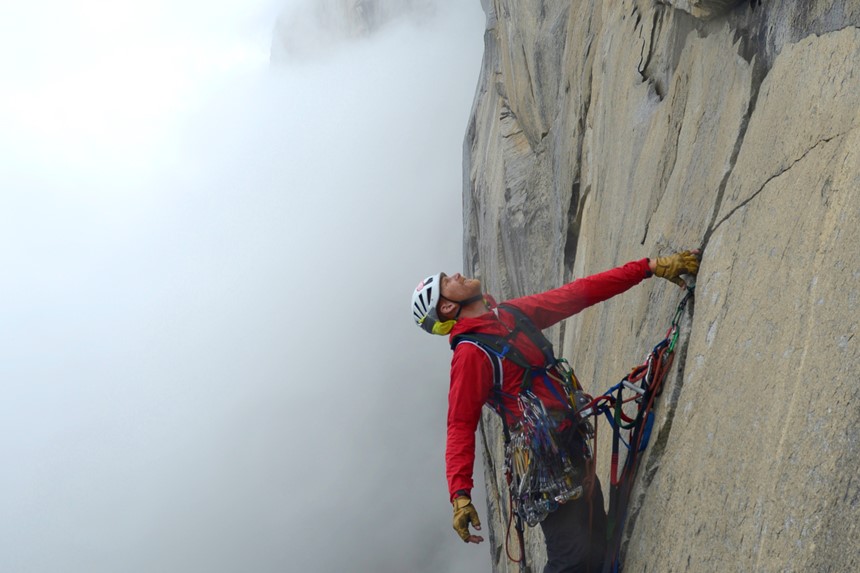
What value do you see in adventure in your work with young people?
It’s priceless. As I said earlier, it’s such an important part of growing up, having these experiences in the wild. For example, a group of instructors (including myself) took a group of wild youngsters on a three-day expedition into the northwest of Scotland. We paddled canoes down a loch, slept in tents, laid on our backs watching shooting stars, fished for mackerel and then cooked them on an open fire. It all sounds great, but it was an extremely challenging three days, with all sorts of antisocial behaviour from the group of young people.
Seven years after this expedition, all the youngsters now in their twenties, I bumped into one of them in the street. At the time this lad probably wasn’t the worst of the group, but in his early twenties he had already done 18 months in prison. When I asked him how he was he reluctantly told me he had been inside, his eyes hung in shame. I didn’t judge him, I thanked him for his honesty. He didn’t have to tell me that.
Then his eyes lit up as he recalled stories from that expedition years ago. He still had the pictures we had given them at the end. I have done hundreds of expeditions over the years, but for this young lad, it changed his life and the positive memories that three days gave him at that time in his life were priceless. At the time I never knew the value it had, not until sevens years later. The power of the outdoors is incredible if used the right way.
I see you’ve been running an Insta Live series. Are there any surprising or interesting reflections around adventure to have emerged through that?
I’ve certainly found out some interesting things about the people I have interviewed. I love sharing their stories as I think we can learn a lot listening to the stories people tell. I think it's clear though adventure is a big part of people’s lives and we should all invest in looking after the environment so it’s still there for future generations.
